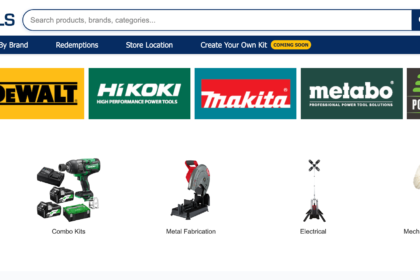Brazil’s tax system can seem complex, especially for those unfamiliar with it. It’s important to grasp the basics to make informed financial decisions. This section breaks down the key aspects of Brazil’s tax landscape.
It covers income tax, residency rules, and available deductions. Understanding these elements is the first step in navigating the Brazilian tax system.
Income Tax Rates for Residents
Brazil uses a progressive income tax system. This means the more you earn, the higher the tax rate. The rates are tiered, with different brackets for different income levels.
Here’s a quick look at the monthly income tax rates for 2024:
| Monthly income (BRL) | Monthly income (USD) | Tax rate | |
| Up to R$2,259.20 | Up to ~$375.60 | 0.0% | |
| R$2,259.20 – R$2,826.65 | ~$375.60 – ~$469.94 | 7.5% | |
| R$2,826.66 – R$3,751.05 | ~$469.95 – ~$623.26 | 15% | |
| R$3,751.06 – R$4,664.68 | ~$623.27 – ~$775.07 | 22.5% | |
| R$4,664.68+ | ~$775.07+ | 27.5% |
Taxation for Non-Residents
Non-residents face a different tax structure. Generally, they pay a flat rate on income sourced from Brazil. This rate is often higher than the lower brackets for residents.
For most Brazilian-sourced income, non-residents pay a flat 25% tax. Rental income from Brazilian property is taxed at 15%. It’s important to know these rates if you’re not a permanent resident.
Key Deductions and Allowances
Brazilian tax residents can reduce their taxable income. Several deductions and allowances are available. These can significantly lower your tax burden.
Here are some common deductions:
- Business expenses for self-employment
- Mandatory social security contributions
- Contributions to private pension plans (up to 12% of income)
- Court-ordered alimony and child support payments
Corporate and Business Taxation in Brazil
Standard Corporate Income Tax
Brazil’s standard corporate income tax (CIT) rate is 15%. There’s also a surtax of 10% on taxable profits exceeding a certain threshold. This threshold is around BRL 240,000.
This means businesses need to factor in both the base rate and the potential surtax. It’s a key consideration for financial planning. Understanding these rates is crucial for any company operating in Brazil.
Social Contribution Tax
Businesses in Brazil also face a Social Contribution Tax (CSLL). This tax ranges from 9% to 20%. The specific rate depends on the industry.
CSLL impacts a company’s overall tax burden. It’s important to accurately classify the business’s industry. This ensures correct tax calculation and compliance.
Withholding Taxes on Dividends and Interest
Brazil has withholding taxes on certain types of income. This includes dividends and interest payments. The rates vary depending on the recipient’s residency.
Dividends are generally not subject to withholding tax for residents. Interest payments to residents are taxed between 15% and 22.5%, based on term length. Non-residents face a 15% withholding tax on interest, unless they reside in a “tax haven,” where the rate jumps to 25%. Understanding these nuances is vital for international transactions.
Property and Consumption Taxes
Municipal Property Tax Considerations
Property taxes in Brazil include the Municipal Property Tax (IPTU). It’s an annual tax. The rate usually ranges from 0.3% to 1.5%.
This tax is based on the fair market value of urban properties. It’s a key revenue source for municipalities.
Understanding IPTU is important for property owners.
Value-Added Tax Structure
Brazil uses a value-added tax (VAT) system. It’s a bit complex. There are actually three different kinds of VAT.
These include the VAT on Sales & Certain Services (ICMS). Also, there is an Excise Tax (IPI). Finally, there is a Service Tax (ISS).
ICMS rates vary widely by state, from 0% to 35%. IPI starts at 0% for basic goods but can reach 300% for luxury items. ISS is generally 2% to 5%.
Estate and Gift Tax Implications
Brazil’s estate and gift tax is called ITCMD. It applies to transfers of assets. This includes financial assets and property.
The tax rate can be up to 8%. It applies to transfers by donation or inheritance.
Non-tax residents only pay ITCMD on assets located in Brazil.
Navigating Capital Gains and Other Taxes
Capital Gains on Assets
Capital gains in Brazil can be a bit complex. It’s not a flat rate across the board. The tax rate actually depends on how much you gained.
Think of it like tiers. The more you profit, the higher the percentage you pay. This applies to things like real estate, vehicles, and even foreign stocks.
Here’s a quick breakdown:
Taxation of Digital Assets
Digital assets are now part of the capital gains conversation. Brazil is starting to address how these are taxed. It’s a developing area, so things are still a bit fluid.
Keep an eye on regulations. They are likely to change as digital assets become more common. Staying informed is key to compliance.
It’s important to document all transactions related to digital assets. This will help when calculating any potential tax liabilities.
Social Security Contributions
Social security is mandatory. It’s automatically taken from your paycheck each month. The amount depends on your income bracket.
Self-employed folks have options. They can choose to pay at different rates. This depends on their specific situation and income level.
These contributions fund retirement and other social programs. It’s a key part of Brazil’s social safety net.
Challenges of Brazil’s Tax System

Complexity of Regulations
Brazil’s tax code? It’s a beast. The sheer volume of regulations makes compliance a headache for everyone. Businesses, big and small, struggle to keep up. It’s a constant game of catch-up with new rules and interpretations.
Navigating this maze requires serious expertise. Many companies end up hiring specialized firms just to stay afloat. Some entrepreneurs consider relocating or expanding to more business-friendly environments, and exploring the best place in USA for start-up businesses—like those outlined by Pact & Partners—can be part of that strategy.
The complexity isn’t just annoying; it’s a real barrier to growth. Companies spend more time and money on compliance than on innovation.
Impact on Foreign Investment
All that complexity? It scares away investors. Foreign companies often balk at the prospect of dealing with Brazil’s tax system. It’s seen as too risky and unpredictable.
High compliance costs also eat into profits. This makes Brazil less attractive compared to other emerging markets. Investors want stability and transparency, and Brazil’s tax system doesn’t always deliver.
Here’s a quick look at how Brazil compares:
| Factor | Brazil | Average Emerging Market | |
| Compliance Cost | High | Medium | |
| Tax Complexity | Very High | Medium |
Government Efforts for Reform
The government knows there’s a problem. They’ve been talking about tax reform for years. The goal is to simplify the system and make it more business-friendly.
But progress has been slow. Political gridlock and conflicting interests often get in the way. It’s a tough nut to crack, but reform is essential for Brazil’s economic future.
Ultimately, a simpler, fairer tax system could unlock Brazil’s potential. It would attract more investment, boost economic growth, and create jobs.
US Tax Obligations for Expats

Citizenship-Based Taxation
The US operates under citizenship-based taxation. This means Uncle Sam taxes all its citizens and permanent residents, no matter where they live. If you earn above a certain threshold, you’re required to file federal income taxes.
Even if you live abroad, the IRS still wants its cut. It’s a system that can feel a bit unfair, especially if you’re also paying taxes in another country. Don’t forget that some expats might even owe state taxes, though that’s less common.
Most Americans associate April 15th with Tax Day, but expats get an automatic two-month extension, pushing the deadline to June 15th. Need more time? File Form 4868 for an additional four months, extending it to October 15th. You can even request an extension to December 15th by writing to the IRS.
Foreign Earned Income Exclusion
One way to reduce your US tax burden as an expat is the Foreign Earned Income Exclusion (FEIE). This lets you exclude a certain amount of your foreign-earned income from US taxes. It only applies to earned income, like salary and wages, not passive income like rent or dividends.
The amount you can exclude changes a bit each year due to inflation. For the 2025 tax year, the limit is $130,000. To qualify, you need to meet either the Physical Presence Test (being outside the US for at least 330 days in a 365-day period) or the Bona Fide Residence Test (living in another country for the entire tax year).
To claim the FEIE, you’ll need to file Form 2555 with your tax return. Remember, while the federal government recognizes the FEIE, state governments usually don’t. So, you probably can’t claim it on your state tax return.
Avoiding Double Taxation
Americans living abroad often face the risk of double taxation. Paying taxes to both the US and another country can be a real financial strain. Luckily, there are ways to avoid this.
One common method is claiming the Foreign Tax Credit (FTC). This gives you a dollar-for-dollar credit for any foreign income taxes you pay. Basically, you subtract your foreign tax bill from your US tax bill. To qualify, the foreign taxes must be legal, based on income, and paid in your name.
If you pay a higher tax rate in another country than in the US, the FTC can eliminate your US tax liability and even give you surplus tax credits. You can then apply these credits to future US tax bills. To claim the FTC, file Form 1116 with your tax return. Strategic tax planning is key to minimizing your tax burden as an expat.
Strategic Tax Planning for Businesses
Optimizing Tax Efficiency
Tax efficiency is key. It’s about making smart choices to lower your tax bill. This involves understanding all available deductions and credits.
Consider timing income and expenses. Also, explore different business structures.
Effective tax planning can significantly boost your bottom line.
Importance of Expert Guidance
Tax laws are complex and ever-changing. Getting advice from a tax professional is a smart move. They can help you navigate the rules and avoid costly mistakes.
They can also identify opportunities you might miss. A good advisor will tailor strategies to your specific business needs.
Don’t try to go it alone; get expert help.
Compliance with International Standards
For businesses operating internationally, compliance is crucial. This means understanding the tax laws of each country where you do business.
Staying compliant avoids penalties and legal issues. It also builds trust with international partners.
Keep accurate records and file all required returns on time. Tax planning is not a one-time event; it’s an ongoing process.
Final Thoughts on Choosing a State for Business
So, when a Brazilian CEO looks at setting up shop in the U.S., the tax situation is a big deal. It’s not just about picking a nice place to live; it’s about finding a state where the numbers work out. Things like corporate income tax, property taxes, and even sales tax can really add up. A smart business leader will do their homework, comparing what each state offers. They’ll look for places that have lower rates and maybe some good incentives. This careful planning helps their company keep more of its money, which can then be put back into the business for growth or other important things. It shows that for international businesses, the choice of location is often a very calculated move, with taxes being a major factor in that decision.
For More Information Visit Timelymagazine








